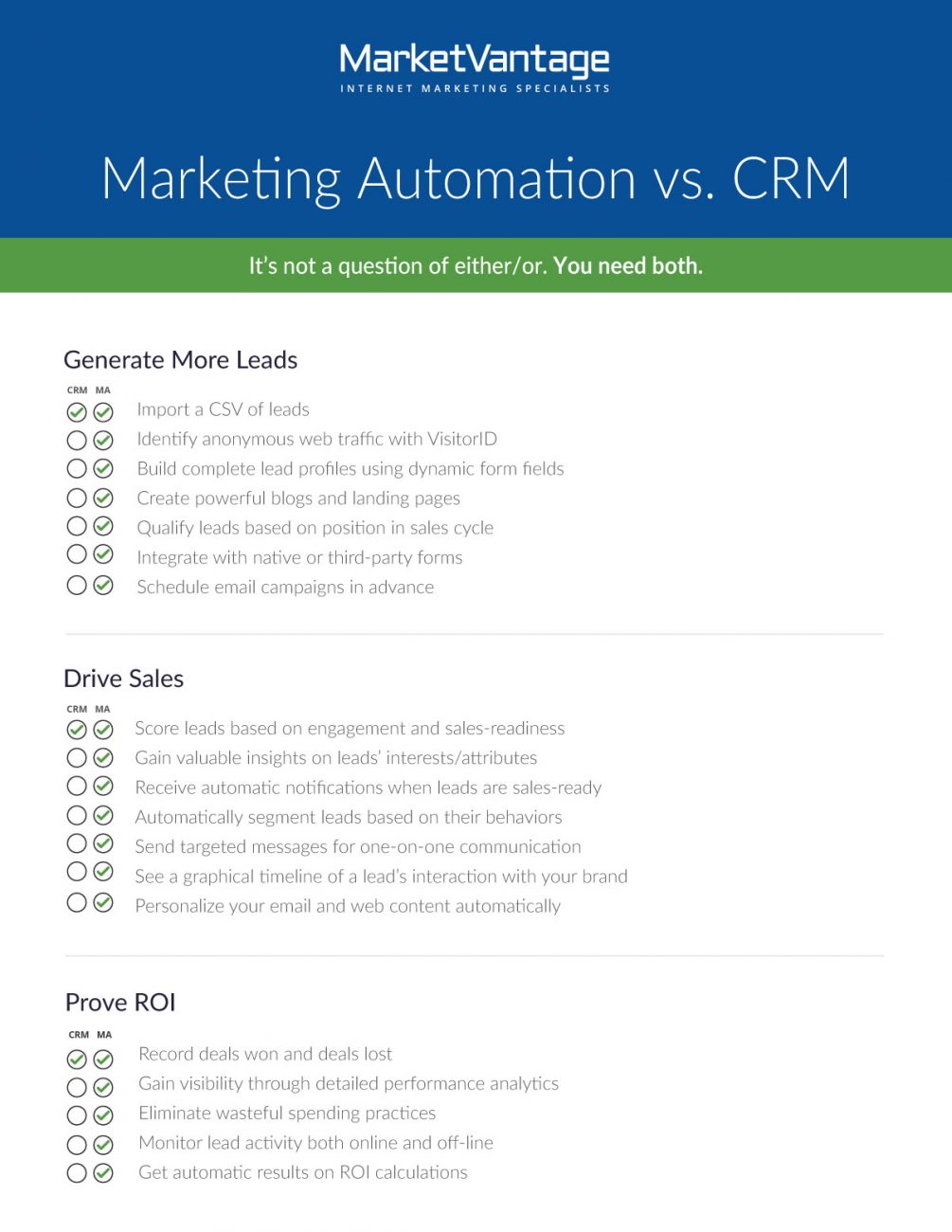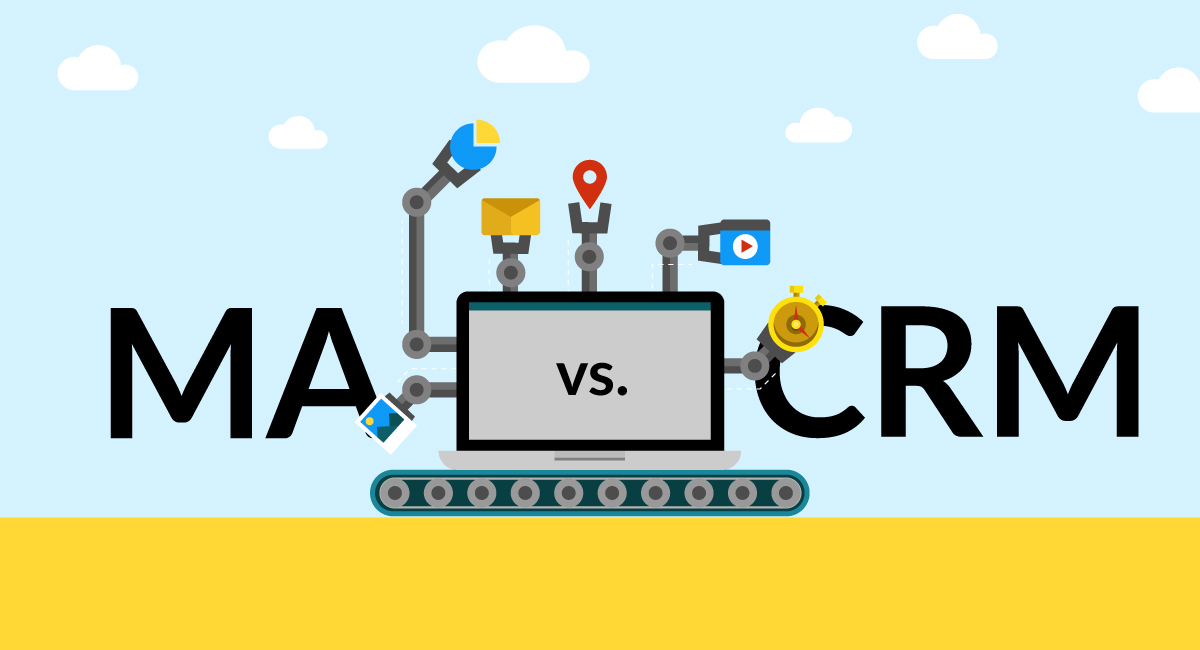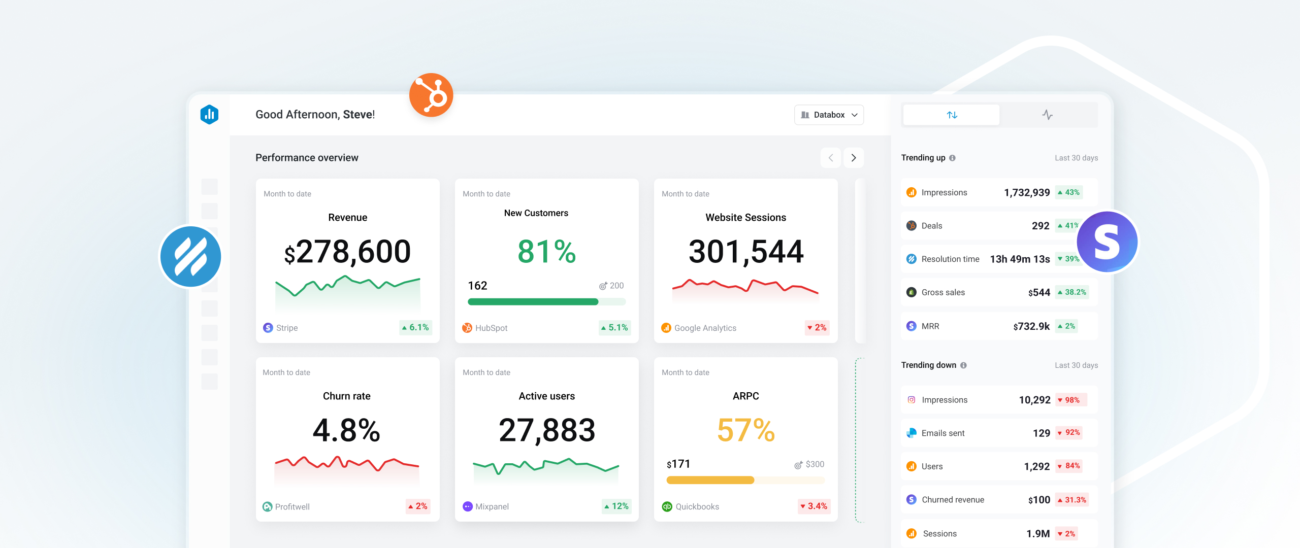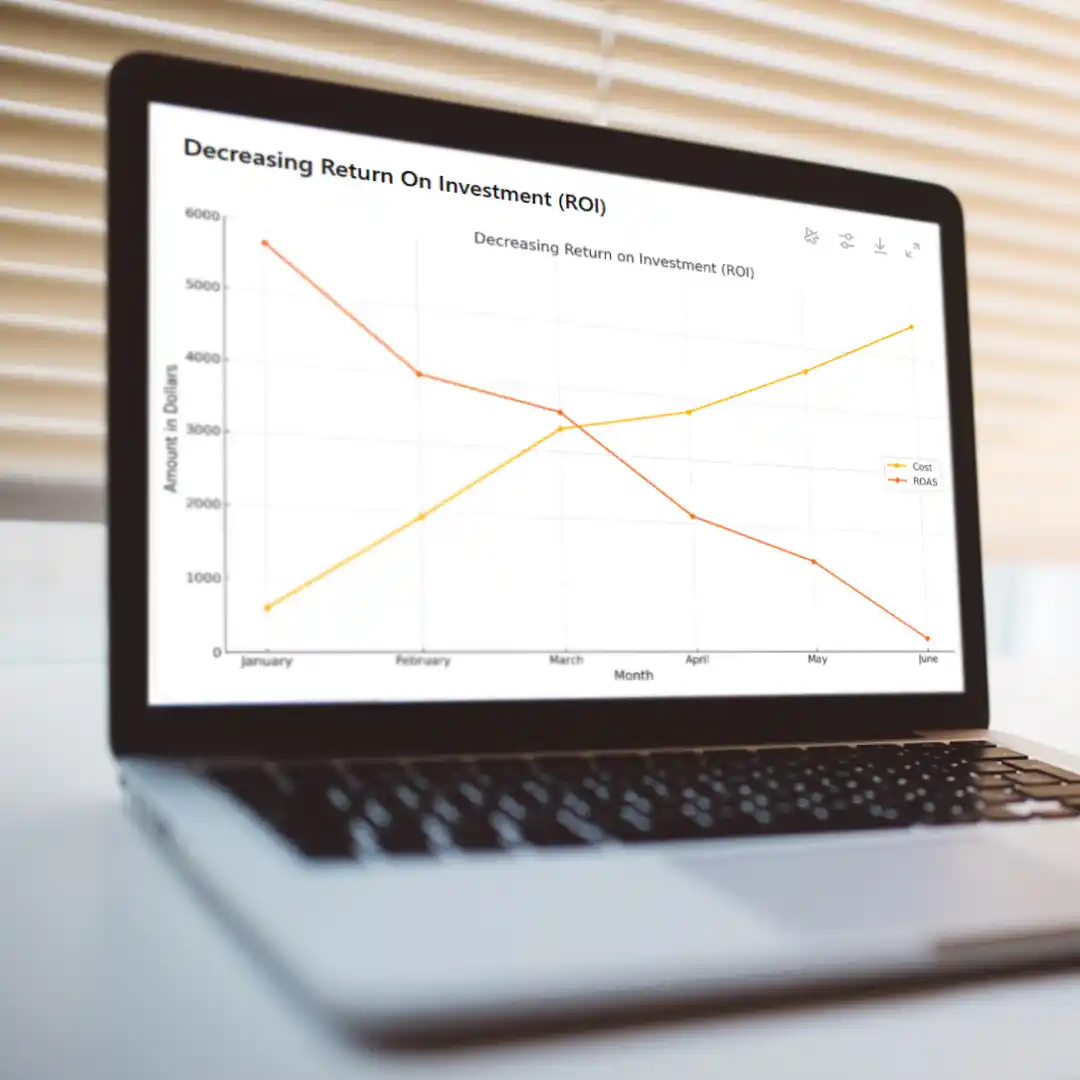There are a wide variety of tools that exist to help marketers achieve their online business goals. With so many options available, it can be daunting to learn the applications of each and determine whether it’s right for your business. One common source of confusion when evaluating platforms is the difference between Marketing Automation and CRM.
These are two vastly different tools, so let’s start by defining them:
The Definition of Marketing Automation
According to Venture Beat, “Marketing automation refers to software platforms and technologies designed for marketing departments and organizations to more effectively market on multiple channels online (such as email, social media, websites, etc.) and automate repetitive tasks.”
The emphasis here is on software platform—marketing automation is not necessarily a specific methodology .
In other words, marketing automation platforms typically allow you, the business marketer, to create emails and landing pages (and automations for these items) and track the results of your online campaigns.
Previously, these processes were typically left for marketing professionals to handle. Now many platforms involve sales elements such as email automation, qualifying/disqualifying leads, and creating sales-focused workflows to help coordinate the efforts between sales and marketing departments.
Related Post: How Marketing Automation Can Enhance Your Business
Now let’s look at CRM:
The Definition of Customer Relationship Management (CRM)
The definition, as defined by Bain & Company, is “an approach to manage a company’s interaction with current and potential customers. [CRM] uses data analysis about customers’ history with a company to improve business relationships with customers, specifically focusing on customer retention and ultimately driving sales growth.”
Therein lies the major difference: while CRM comprises the system (typically software) for managing customer data, marketing automation includes CRM plus many other features like automated emailing/engagement, landing page creation and hosting, and converting leads into sales, to name a few.
For a graphical comparison of the two, see the image below:

Why Is This Distinction Important?
In recent years, as common pieces of terminology have become industry jargon, their definitions have been lost. The meanings of these words can be complex, and understanding (or misunderstanding!) the terms of your trade can be consequential for not only online marketing, but for the business as a whole.
Typically, CRM is a component of marketing automation. Marketing automation offers a far more robust capability and takes much more strategizing in order to generate results for business.
Related Page: Marketing Automation Services
Conclusion
If you’re looking for a tool to effectively automate & track your online marketing efforts, marketing automation might be the solution. If your focus is specifically on tracking your business relationships and retaining customers, you should look into CRM.
It goes without saying that before committing to any marketing approach, make sure you understand what it entails—and what it doesn’t!





